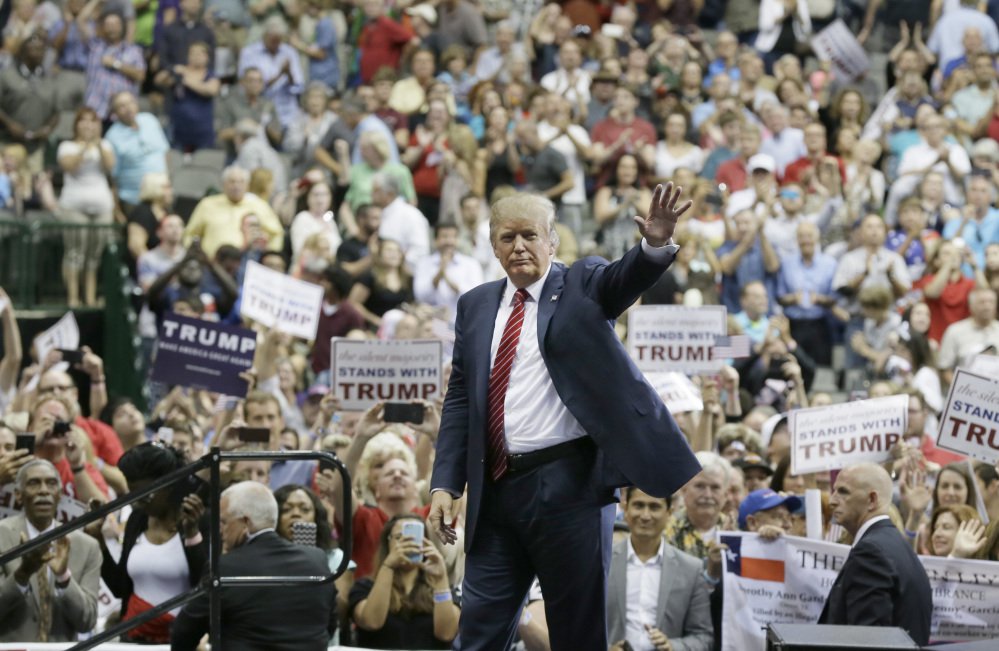(Freedom.news) This year’s presidential election cycle is historic for a number of good reasons, but it ultimately will be remembered for a very bad one: It will become the election cycle where most Americans will finally realize the two primary political parties have completely hijacked the presidential nomination process.
For the Republicans, this fact was laid bare last week, as the new, new, new GOP establishment pick, Sen. Ted Cruz of Texas, won all the delegates in the state of Colorado without a single resident of the state casting a ballot.
How is that possible? Last August, the Denver Post reported, the state Republican Party voted to cancel its caucus “after party leaders approved a little-noticed shift that may diminish the state’s clout in the most open nomination contest in the modern era.”
“The move makes Colorado the only state so far to forfeit a role in the early nomination process, according to political experts, but other caucus states are still considering how to adapt to the new rule,” the paper reported further.
“It takes Colorado completely off the map” in the primary season, said Ryan Call, a former state GOP chairman.
In February, the Post, in an editorial, took the state party elders to task for making the change:
GOP leaders have never provided a satisfactory reason for forgoing a presidential preference poll, although party chairman Steve House suggested on radio at one point that too many Republicans would otherwise flock to their local caucus.
Imagine that: party officials fearing that an interesting race might propel thousands of additional citizens to participate. But of course that might dilute the influence of elites and insiders. You can see why that could upset the faint-hearted. …
It’s bad enough the two parties in Colorado don’t have presidential primaries in which many more voters would participate. The caucuses already limit participation to a narrow slice of the electorate. But the fact that the Republican leadership then took matters a step further and deprived even that narrow slice of voters a voice in one of the most competitive, consequential political nominations in memory – and perhaps in history – is mindboggling.
Of course, the Democrats are anything but blameless. As the New York Post reported over the weekend, socialist Sen. Bernie Sanders of Vermont has been kicking rival Hillary Clinton’s booty, in a series of contests over the past month, winning seven of eight – but because of the Democratic Party’s corrupt “super delegate” system – a large number of voting delegates who are essentially free to pick who they want, regardless of voter turnout – Sanders keeps falling further behind a rival whose campaign is so listless she is unable to fill even small venues.
Wyoming’s caucus last week is a classic example, as noted by the NY Post:
The Vermont senator took Wyoming by an impressive 12 percentage-point margin in statewide caucuses, beating Hillary Clinton 56-44 percent.
But under the Democratic Party’s oddball delegate system, Sanders’ winning streak — he has won seven out of the past eight contests — counts for little.
In fact, despite his win, he splits Wyoming’s 14 pledged delegates 7 to 7 under the caucus calculus.
Clinton, meanwhile, also gets the state’s four superdelegates — who had already pledged their allegiance to her in January. So despite “losing,” she triumphs 11-7 in the delegate tally.
For his part, the GOP frontrunner, billionaire businessman Donald Trump, has Colorado – and the GOP establishment – pegged.
“I’ve gotten millions … of more votes than [Sen. Ted] Cruz, and I’ve gotten hundreds of delegates more, and we keep fighting, fighting, fighting, and then you have a Colorado where they just get all of these delegates, and it’s not [even] a system,” he said Monday on “Fox & Friends.” “There was no voting. I didn’t go out there to make a speech or anything. There’s no voting.”
Continuing, Trump talked about how preferred candidates win delegates these days: “They offer them trips — they offer them all sorts of things, and you’re allowed to do that,” Trump said, of the method by which some woo delegates. “I mean, you’re allowed to offer trips, and you can buy all these votes. What kind of a system is this? Now, I’m an outsider, and I came into the system and I’m winning the votes by millions of votes. But the system is rigged. It’s crooked.”
Crooked is an apt description, but really it’s an understatement. What is obvious by the way in which both parties have Gerry-rigged the primary and caucus process is that the establishment can manipulate it at any point during an election cycle to get the outcome they want. For Democrats it’s the pre-pledged “super delegate” vote (of the 500 super delegates who have announced who they are supporting, 469 have pledged for Clinton, even though she’s losing contest after contest); for the Republicans, this year, it is the likelihood of a contested convention, in which no candidate gets the requisite 1,237 delegates on the first ballot and which the party elders are very likely planning to “install” a hand-picked candidate who either has not campaigned for president at all or who has already lost and is sitting on the sidelines (or in the case of Mitt Romney, a two-time loser).
Who gets hurt in all this? The American people, of course.
It’s bad enough to merely believe we’ve lost control of our political process; it is angering beyond words to have our suspicions confirmed, however. Where we go from here is anybody’s guess, but you can bet one thing is certain: Party elites may not want us to go away mad, they just want us to go away.
See also:
Freedom.news is part of the USA Features Media network.


